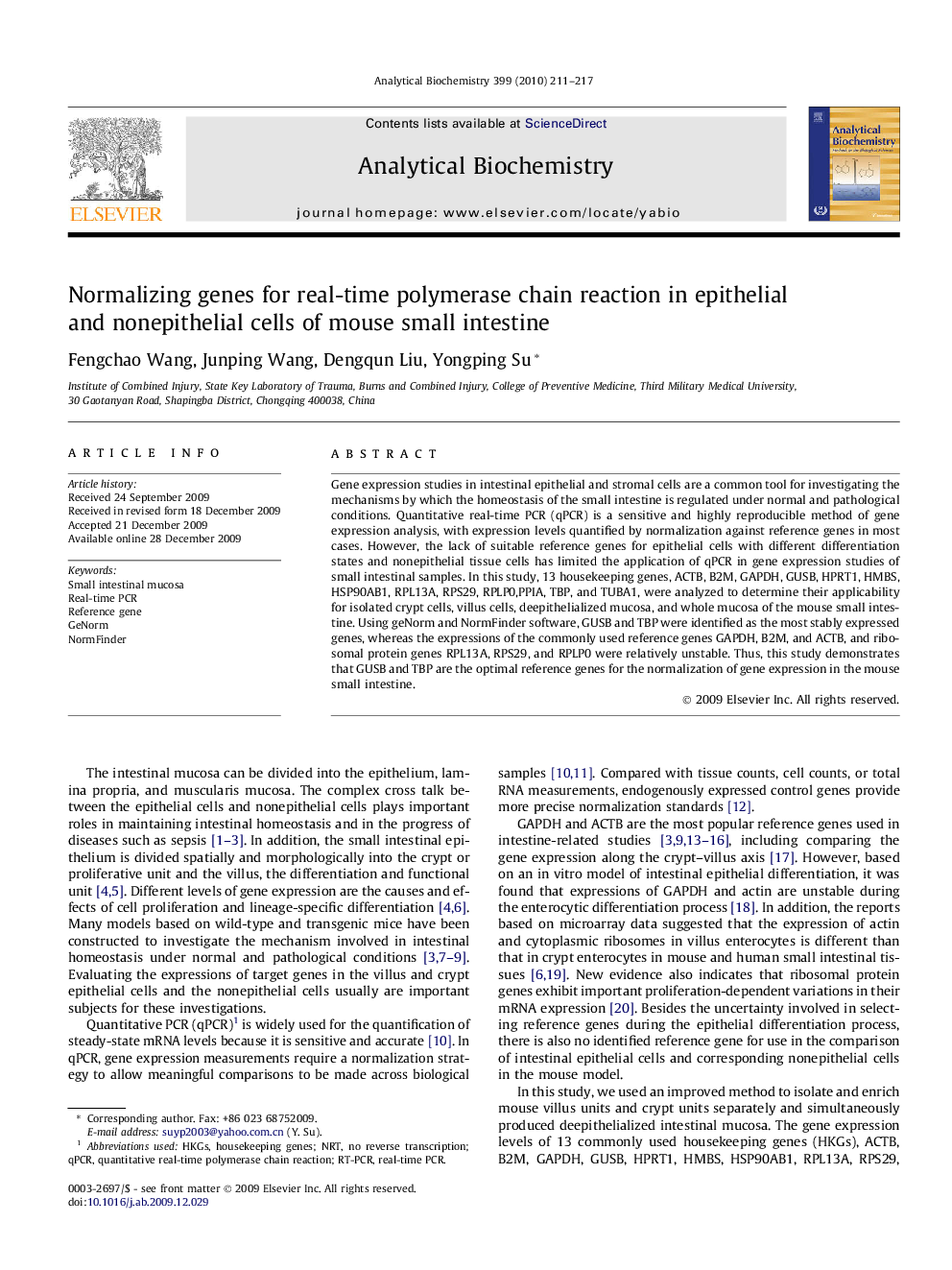| Article ID | Journal | Published Year | Pages | File Type |
|---|---|---|---|---|
| 1175210 | Analytical Biochemistry | 2010 | 7 Pages |
Gene expression studies in intestinal epithelial and stromal cells are a common tool for investigating the mechanisms by which the homeostasis of the small intestine is regulated under normal and pathological conditions. Quantitative real-time PCR (qPCR) is a sensitive and highly reproducible method of gene expression analysis, with expression levels quantified by normalization against reference genes in most cases. However, the lack of suitable reference genes for epithelial cells with different differentiation states and nonepithelial tissue cells has limited the application of qPCR in gene expression studies of small intestinal samples. In this study, 13 housekeeping genes, ACTB, B2M, GAPDH, GUSB, HPRT1, HMBS, HSP90AB1, RPL13A, RPS29, RPLP0,PPIA, TBP, and TUBA1, were analyzed to determine their applicability for isolated crypt cells, villus cells, deepithelialized mucosa, and whole mucosa of the mouse small intestine. Using geNorm and NormFinder software, GUSB and TBP were identified as the most stably expressed genes, whereas the expressions of the commonly used reference genes GAPDH, B2M, and ACTB, and ribosomal protein genes RPL13A, RPS29, and RPLP0 were relatively unstable. Thus, this study demonstrates that GUSB and TBP are the optimal reference genes for the normalization of gene expression in the mouse small intestine.
